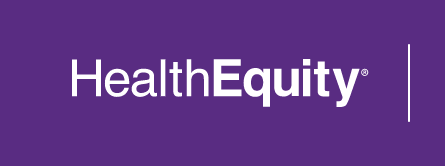As an employer, you are likely looking for ways to save healthcare costs without hurting the overall morale of your employees. One option to explore is offering high deductible health plans to reduce your rising premium costs.
By having a high deductible health care plan, your employees are eligible to open a health savings account (HSA). Opening an HSA brings many tax benefits to your employees and you as their employer if you contribute money to their HSAs.
Money saving options for employers
There are two ways you can make tax-free contributions to your employee's HSAs: with a Section 125 plan or without a Section 125 plan.
Section 125 is part of the IRS tax code that allows employees to convert a taxable benefit (like salary) into non-taxable benefits. It allows employees to be paid with benefits (like health insurance premiums) on a pre-tax basis. You can use a section 125 plan to offer matching contributions to your employees which saves on payroll taxes (7.65%) for all employee contributions.
Without a Section 125 plan, employers can make tax free contributions as long as they are "comparable" for all employees participating, according to the IRS comparability rules. Comparable contributions are defined as contributions that are the same dollar amount or same percentage of the employee's deductible for all employees with the same category of coverage.
Many employers use a Section 125 plan because HSA contributions are not subject to the comparability rules - though nondiscrimination rules do still apply. Nondiscrimination rules restrict employers from making excessive contributions in favor of highly compensated employees.
Triple tax advantages of HSAs for employees
HSAs are tax advantaged1 accounts that allow both you and your employees to contribute into the account so your employees can pay for medical expenses and save for the future. The triple tax advantages include:
- Funds can be contributed into the account on a pre-tax basis
- Funds can be invested and grow tax free
- Funds used for qualified medical expenses are tax free.
This triple tax advantage makes an HSA a great vehicle to use for healthcare expenses now and save for the rising healthcare expenses in retirement. Your contribution into your employee's HSA is tax-free as well.
Example²
Here's an example of how an employer could use the savings on premiums from a high deductible health plan to fund an employer contribution to the HSA to offset the higher deductible.
XYZ Company offers a traditional health plan with a $1,000 deductible
$1,000 Annual deductible
$500 Monthly Premium
$400 (Employer Pays 80% of premium)
$100 (Employee Pays 20% of premium)
HSA qualified plan
$1,500 Annual deductible
$350 Monthly Premium
$280 (Employer pays 80% of Premium)
$70 (Employee pays 20% of premium)
Difference in Premium
Employer $120
Employee $30
As an employer, you can offer a match of your employee's HSA contribution to incentivize them to make HSA contributions. Their HSA contributions are deducted from payroll on a pre-tax basis, which saves you their portion of FICA taxes (7.65%).
HSA qualified plan
$1,500 annual deductible
$350 monthly premium
$280 (employer 80%)
$70 (employee 20%)
Employer HSA match $30 month + employee HSA contribution $30 = $60/mo. $720/yr. for your employee's HSA.
$30 employer/monthly match
x 500 employees
$15,000
x 12 months
$180,000 x 7.65% = $13,770 tax savings
Based on the example above, If the employer adds their contribution to be 100% matched up to $30 per month ($360 per year) and 500 employees contributed at least $360 annually, that saves you a staggering $13,770 annually in FICA taxes ($360 x 7.65% x 500 employees).
If your employees accept your match, their total annual contribution into the HSA would be $720, which helps to offset some of the cost of the higher deductible.
Conclusion
HSAs have great tax advantages for both you and your employees. As an employer, a properly designed plan that integrates an HSA and employer contributions can actually create a win-win situation for both you and your employees as they save for healthcare expenses now and into retirement.
To learn more about how to take advantage of the many other benefits that HSAs provide, visit www.healthequity.com/HSAlearn.
- HSAs are never taxed at a federal income tax level when used appropriately for qualified medical expenses. Also, most states recognize HSA funds as tax-free with very few exceptions. Please consult a tax advisor regarding your state's specific rules.
- The example provided is hypothetical. Results will vary and may not be representative of the experiences of others.
Nothing in this communication is intended as legal, tax, financial, or medical advice. Always consult a professional when making life-changing decisions.


